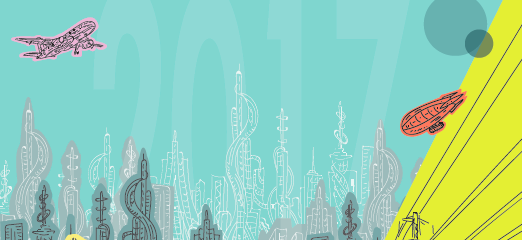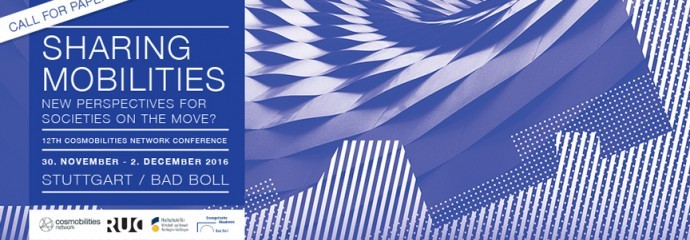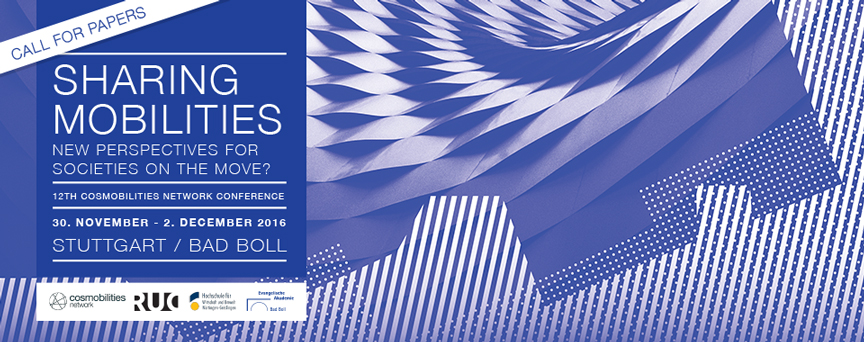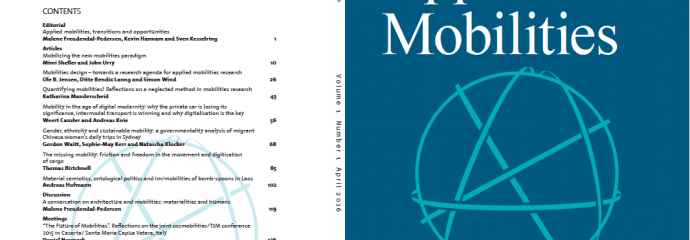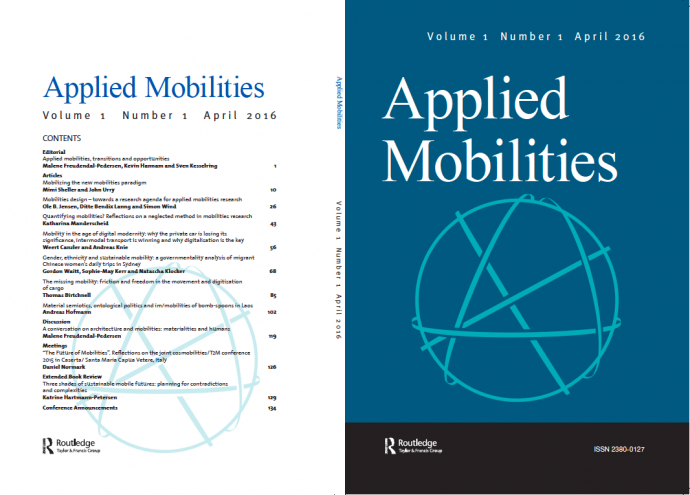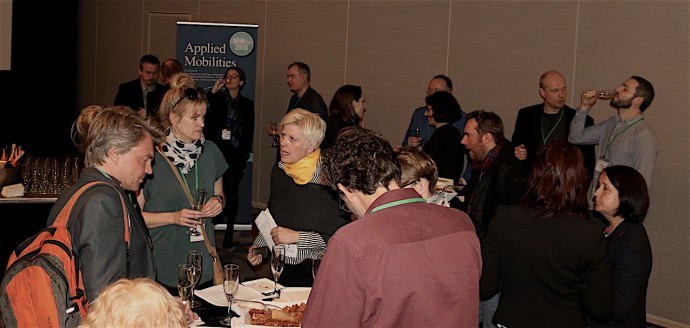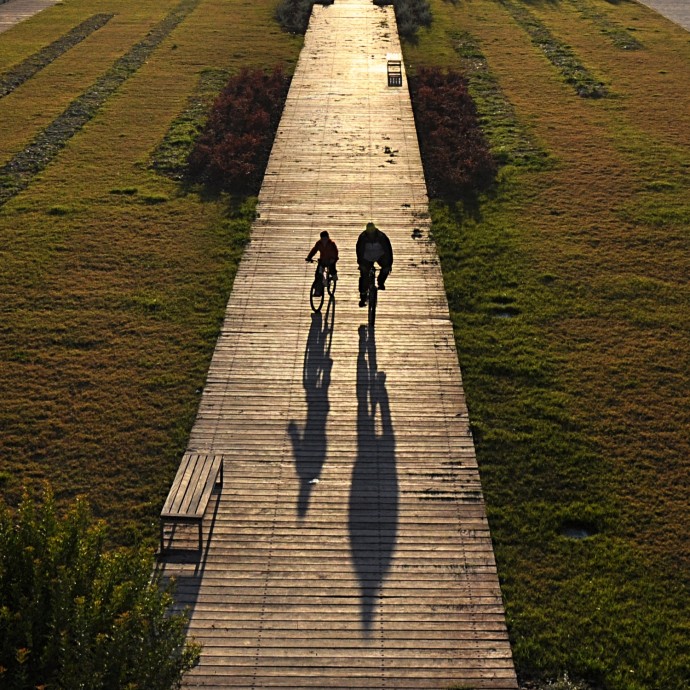Call for Papers, Artsworks, Posters
Mobile Utopia: Pasts, Presents, Futures
Conference 2-5 November 2017 / Fringe Events 29 October – 2 November 2017
At Centre for Mobilities Research, Lancaster University, UK
‘Mobilising’ utopia can provide important insights into intergenerational, multi-scalar, human and non-human interconnectivities across transport, traffic and mobilities. From Thomas More’s Utopia (1516) to Ruth Levitas’ Utopia as method (2013) and John Urry’s What is the future? (2016), utopia has been a powerful means to explore how societies have shaped, and have been shaped by, complex im|mobilities, from microbial to big data mobilities, from horse-drawn carriages to driverless cars, from migration to planetary jet streams. Faced with the global uncertainties of the Anthropocene, utopia provides renewed analytical and creative purchase.
This joint conference brings together historians, researchers, artists, policy-makers, designers, and innovators to explore Mobile Utopia: Pasts, presents and futures. Lancaster’s Centre for Mobilities Research, the International Association for the History of Transport, Traffic and Mobility (T2M) and the Cosmobilities Network have joined together to invite contributions across the spectrum of mobile utopian themes. In addition, proposals may address any aspect of the history, and social, cultural, economic, technological, creative, ecological and political aspects of transport, traffic and mobility.
The celebrations that marked the 500th anniversary of the publication of Thomas More’s Utopia have been both global and wide-ranging. In his seminal work, More outlined his ideas around an alternative society living in a City of Man in contrast with former visions of the City of God. Five centuries later, we are part of a world where 54 per cent of the population live in cities (Worldbank 2015), and the trend is set to continue and increase, with the UN estimating that the world’s population is to reach 9.7 billion by 2050. This poses great challenges concerning natural resources, (food) security, clean water, energy, environmental and social justice, and more. This all involves mobilities of different kinds, operating at different spatial and temporal scales, with different motivations, processes, and consequences.
Utopia is an integrative method that can assist us when thinking about the relationship between societies and mobilities past, present, and future. It can help us trace the complex interconnections between the urban and the rural, the digital, oceanic, global, and planetary, the here-and-now and the longue durée. Utopia creates rich ground for contestation, as one person’s utopia can be another’s dystopia, and innovative visions followed through produce unintended consequences. From the UN’s Sustainable Development Goals to visions of a future where CO2 emissions are no longer the norm, utopia helps us challenge the past and present by imagining the future.As research has shown, transformations in governance, everyday practices, and exchanges between communities are key to the success or failure of these visions.
This call invites proposals exploring utopia as a heuristic and creative methodology – rather than as a narrative closed system – which challenges our assumptions about what has been possible in the past and what will be possible and preferable in the future. We invite reflections on the diverse dimensions of im|mobility adopting such a utopian perspective from any city, country or place, in relation to any theme, scale, or period in history. We encourage transnational, comparative, artistic, design-led, interdisciplinary and trans-modal approaches, and welcome proposals exploring theoretical or methodological issues as well as those of a more empirical nature. We invite different submission and presentation formats.
Topics may include, but are not restricted to:
- Traffic, transport, mobilities and social futures
- Urban, rural, digital mobilities
- Space, geoengineering, planetary mobilities
- Intergenerational mobilities
- Embodiment, health, healing and wellbeing
- Civility, migration and citizenship
- Mobility justice, human rights and mobility
- Pasts, presents, futures of tourism
- Energy production and consumption
- Automation, autonomous machines, robotics
- Post-human ontology, phenomenology
- Critiques of the concept of anthropocene, non-human mobilities
- Sustainable mobilities
- Utopia in the ruins of capitalism and modernity
- Living alternatives
- Corporate mobilities futures
- Utopia as method
- Mobile utopias, dystopias, anti-utopias, beyond-utopias
- The history and heritage of mobile utopia
- Mobile Utopia & the state, globalization, cosmopolitanism
- Free-market and neoliberal utopia
- Values and moral orders of mobility and travel
- Arts practice and research as mobile utopia
Proposals can be for individual papers, panels, artworks, posters, and other creative formats as outlined below. We welcome relevant contributions from any academic perspective or discipline, from professionals, policy makers and practitioners, as well as artists and creative professionals, designers, and engineers. Recent entrants to the research field and doctoral students are very welcome.
The conference language is English.
Submission deadline is April 15th. Hope this give you a little bit more space to be creative.
We can’t wait to receive your contributions!

